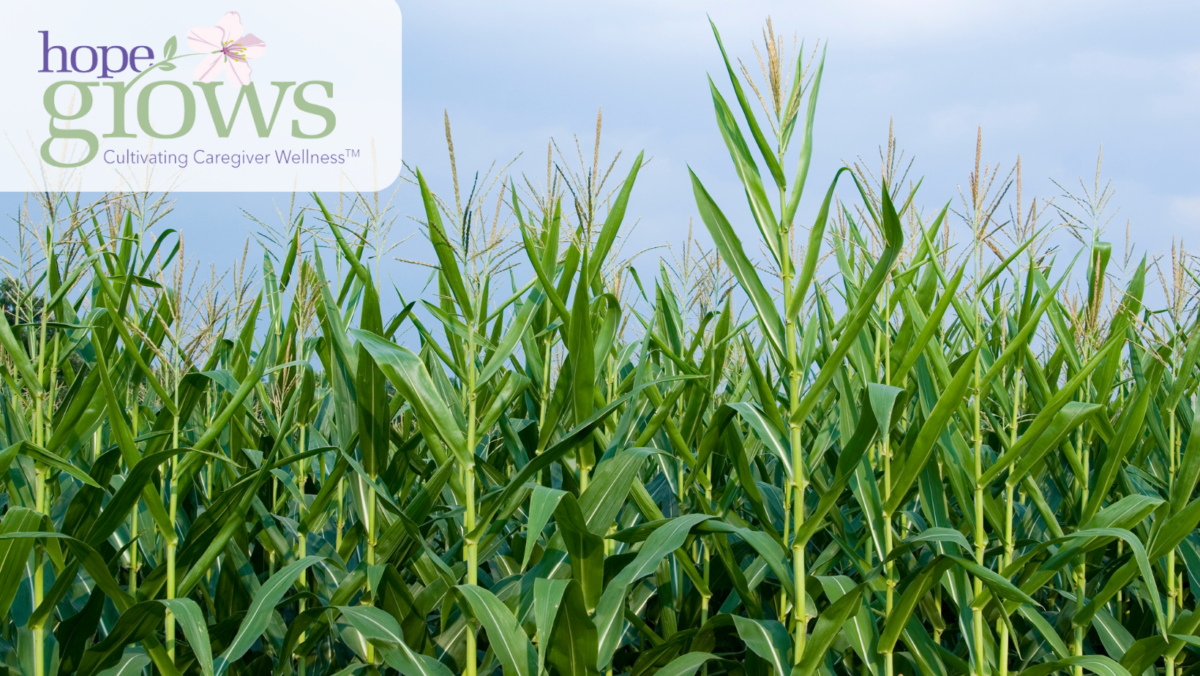Finding Your “Why”
The arrival of autumn brings a powerful metaphor for change, reflection, and letting go. I feel like this seasonal transition is one of the most talked about and I ponder and wonder the reason, other than nature serves as a mirror for our inner journey, helping us refine ourselves and find the “why” in life.
One of the most “why” provoking life events is any pain and suffering, such as violence, abuse, and loss. Violence is just senseless, abuse is merely unacceptable, and losing someone is heartbreaking. None the less, they all provoke the proverbial “why” question.
While finding our “why” can be challenging in most circumstances, I believe the pain and suffering from violence, abuse, and loss deserve a different emotional response than the written words in this blog. For the sake of this communication, my focus here is caregiving, and the pain and suffering caregivers witness on a daily basis can often make life feel disorienting and overwhelming.
Being there for someone in the most vulnerable time of their life is an ebb and flow, where we are consistently evaluating our space and time to be at the top of our game, so to speak. The transition of seasons can guide us in many ways and by considering the reciprocal relationship between self and nature, we can help with the “why” that surfaces.
If you are a regular reader of these blogs, you will know that I have talked about this type of reciprocity before. Use this blog in a way to find guidance in connecting to the deeper “why” amidst the difficult emotions providing care evokes. Consider the thought-provoking words below and the suggested reflection.
When we witness suffering as part of a natural cycle in nature, there is constant death and rebirth, decay and renewal. While suffering is difficult to witness, understanding it as part of the broader life cycle can help reframe its meaning. Just as storms pass and seasons change, suffering too, while painful, has a place. Witnessing pain does not negate the moments of love, peace, and healing that occurs, it becomes a greater rhythm beyond the immediate hardship.
Reflection: Ask yourself how you can see the suffering you witness as part of a larger cycle. Can you find peace in the knowledge that, like nature, all things are impermanent, and your presence is helping someone through a critical part of their journey?
Even nature endures challenging moments, with its small, subtle growth. Albeit slow, but yet, almost an imperceptible growth. Similarly, caregiving often involves small victories that can easily go unnoticed in the midst of pain—moments of comfort, moments where dignity is preserved, or where human connection transcends suffering. Finding your “why” in caregiving may lie in recognizing these subtle, yet meaningful impacts.
Reflection: At the end of each day, reflect on one small moment where you helped or witnessed something good. It could be as simple as offering a kind word, seeing a patient’s smile, or easing someone’s burden, even if briefly. These moments can help you reconnect to the purpose behind your care.
Nature is always fully present, adapting to each moment as it comes. Caregiving too demands presence, a mindfulness that allows you to be fully engaged in each task, each interaction. When the pain and suffering seem overwhelming, being present in the now—without trying to control or fix everything—can help ease the emotional weight. In this way, the act of caregiving itself can become a meditation, an opportunity to focus on the here and now.
Reflection: Ground yourself when you feel overwhelmed by taking deep breaths, and focus on the moment at hand rather than projecting into the future or dwelling on the past. Let nature remind you that your “why” is found not in grand gestures but in the quiet, moment-to-moment presence you offer.
A gardener doesn’t control the seasons or stop the cycle of life, but creates conditions for growth despite the inevitable changes. As a caregiver, your role is not to prevent suffering but to cultivate moments of relief, comfort, and peace wherever possible.
Reflection: See yourself as a steward of well-being. Even in the face of pain, you are creating space for hope, dignity, and connection. This understanding can be your “why”—that your care, even amidst suffering, brings essential elements of humanity to those who need it most.
There is a reciprocity of care in nature, a give and take if you will. Caregiving is also reciprocal. You offer physical, emotional, and spiritual support and, in turn, caregiving offers you opportunities to grow in empathy, patience, and resilience. The service you provide often unlocks a deeper sense of purpose. Your “why” may emerge in recognizing that the act of caregiving, no matter how painful, is also part of your own personal growth and evolution.
Reflection: Consider how the experience of caregiving is shaping you. How is this deepening your sense of compassion? What lessons are you learning about the fragility and beauty of life, about your own capacity for love and strength?
In nature, nothing exists in isolation—everything is interconnected. Similarly, caregiving can often feel isolating, but it’s important to remember that you are not alone. Leaning into community support (other caregivers, friends, family, spiritual groups, or Hope Grows) can remind you that your “why” is connected to something larger. Even the strongest tree thrives in a forest, not in solitude.
Reflection: Find a way to connect with other caregivers or people who understand your challenges. Sharing your experiences can help you process difficult emotions and find meaning in the shared human experience of caregiving.
In nature, harsh conditions often create resilience and beauty—think of how trees with deep roots survive storms or how flowers bloom after fire. Similarly, the suffering you witness can deepen your sense of compassion, empathy, and patience. Caregiving, when seen through the lens of this reciprocal relationship, becomes not just about providing care, but about allowing that care to transform you as well.
Reflection: Consider how the suffering you witness has softened or expanded your heart. Your “why” may not always be found in what you can do to relieve suffering, but in how your heart responds to it with kindness, understanding, and love.
One final thought worth considering: while caregiving during times of suffering may feel unbearable, considering the above nature suggestions with the reflection, a deeper purpose just might emerge. Everything is interconnected, temporary, and part of a larger whole in nature. Your “why” in caregiving may not be about fixing or stopping the suffering, but about showing up with presence, love, and resilience amidst the pain.
Let your care be a reflection of the cycles of nature, EVER-Giving-Growing-Evolving, even through the darkest of seasons. And remember, if the hike gets rough, Hope Grows is here to support your seasons of change.
Written by Lisa Story, MSCP, LPC, CT
Hope Grows Founder & Clinical Director


